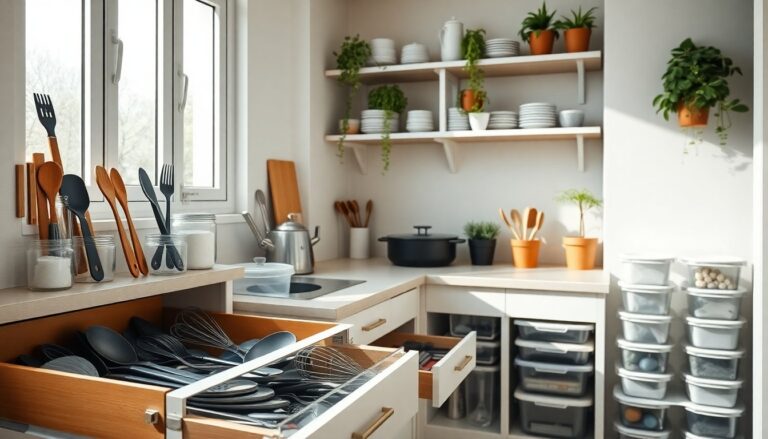Argomenti trattati
Many individuals experience a common challenge of feeling cramped for space within their own homes. While a lack of storage capacity may seem to be the primary issue, often the real problem lies in the items occupying available space. For example, a kitchen drawer overflowing with cookie cutters can be unnecessary for someone who seldom bakes. This illustrates how homes can become burdened with items that no longer serve a purpose.
According to professional organizers like Bridget Urgo, clutter does not just consume physical space; it can also negatively impact mental well-being. “Many individuals underestimate how much their clutter impacts their peace of mind,” she explains. Engaging in a process of decluttering can enhance the ability to locate items, improve mental clarity, and reduce impulsive purchases of duplicate items.
Identifying unnecessary items
One of the initial steps in reclaiming space is recognizing which items are occupying room unnecessarily. A common item found in many homes is the vase received as a gift. Often, these vases are pushed to the back of cabinets, gathering dust. Professional organizer Maura Fitzgerald suggests that people typically prefer to use their favorite decorative vase for personal arrangements instead of a collection of random ones. “You’ll always gravitate towards your favorite vase,” she notes.
What to do with extra vases
The good news is that these vases can be repurposed. Many florists will gladly accept returned vases, providing a sustainable way to clear space while supporting local businesses.
Streamlining kitchen tools and appliances
Another common challenge arises in the kitchen, where clutter tends to accumulate. Items such as specialized fruit tools—like an apple corer or mango slicer—often clutter drawers without adding real value. Urgo advises that a sharp knife is sufficient for most fruit-related tasks, a sentiment echoed regarding many trendy appliances that remain unused. Fitzgerald notes the prevalence of gadgets like Instant Pots, which often sit idle in storage.
Finding new homes for unused appliances
Instead of allowing these appliances to occupy valuable kitchen space, consider donating or selling them. Many community libraries or local organizations may have programs to rent out such items, providing them a new lease on life while freeing up space.
Managing electronic clutter
It’s not uncommon to find collections of outdated electronics—such as old mobile phones, obsolete laptops, and tangled cords. The inclination to keep these items often stems from the belief that they might be needed someday; however, this is frequently a false hope. Before disposing of these devices, Urgo emphasizes the importance of wiping personal data to protect one’s information.
Responsible disposal of electronics
Once devices are reset, explore recycling programs or manufacturer buy-back options. Many companies offer credits towards new purchases for returned devices, creating a beneficial situation for both space and finances.
Assessing paper clutter and keepsakes
Paper clutter poses another challenge, whether it consists of stacks of old receipts, instruction manuals, or children’s artwork. Professional organizer Nikki Boyd encourages parents to select and keep only their children’s most treasured pieces, while digitizing the rest. “Photograph the artwork and create a digital collection to cherish the memories without the clutter,” she suggests.
Efficiently managing gift supplies
Additionally, the accumulation of gift supplies can lead to overflowing closets. Shira Gill highlights the tendency for individuals to gather items like wrapping paper and gift bags. “Narrow down your collection to what you truly need,” she advises, suggesting the use of dedicated organization systems to maintain order.
Make space for what matters
According to professional organizers like Bridget Urgo, clutter does not just consume physical space; it can also negatively impact mental well-being. “Many individuals underestimate how much their clutter impacts their peace of mind,” she explains. Engaging in a process of decluttering can enhance the ability to locate items, improve mental clarity, and reduce impulsive purchases of duplicate items.0

